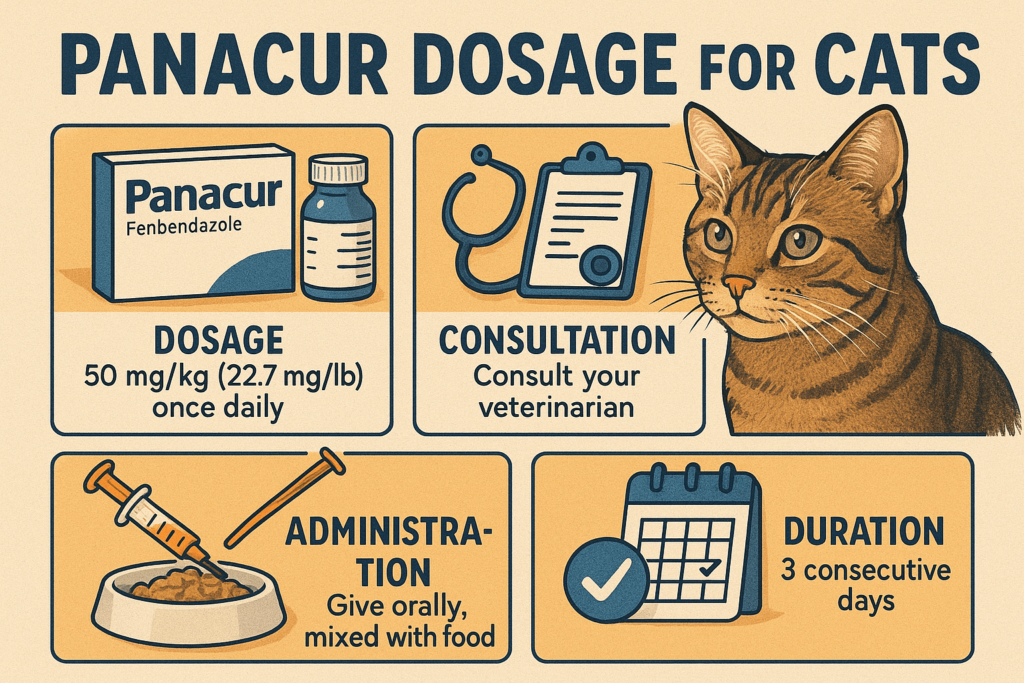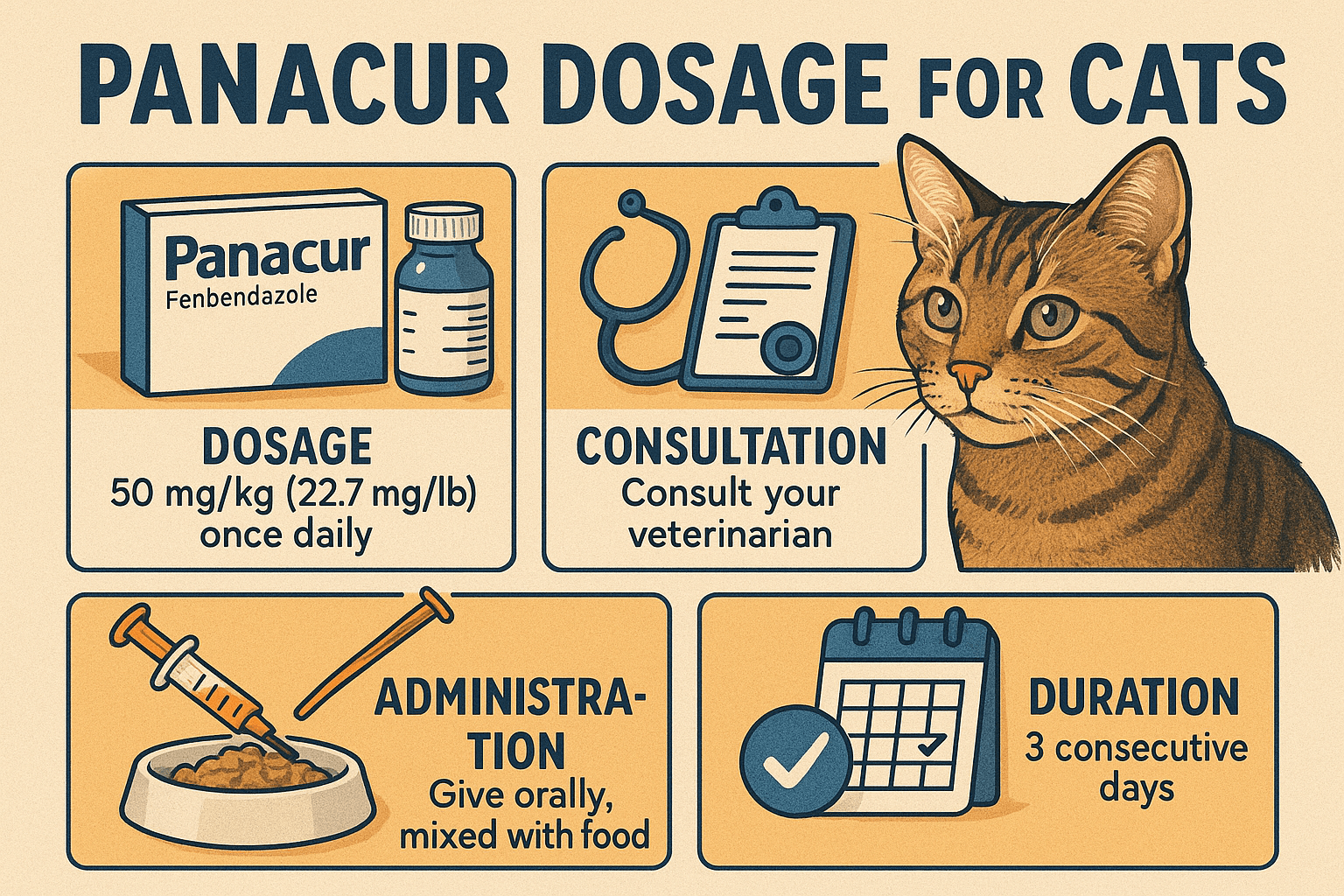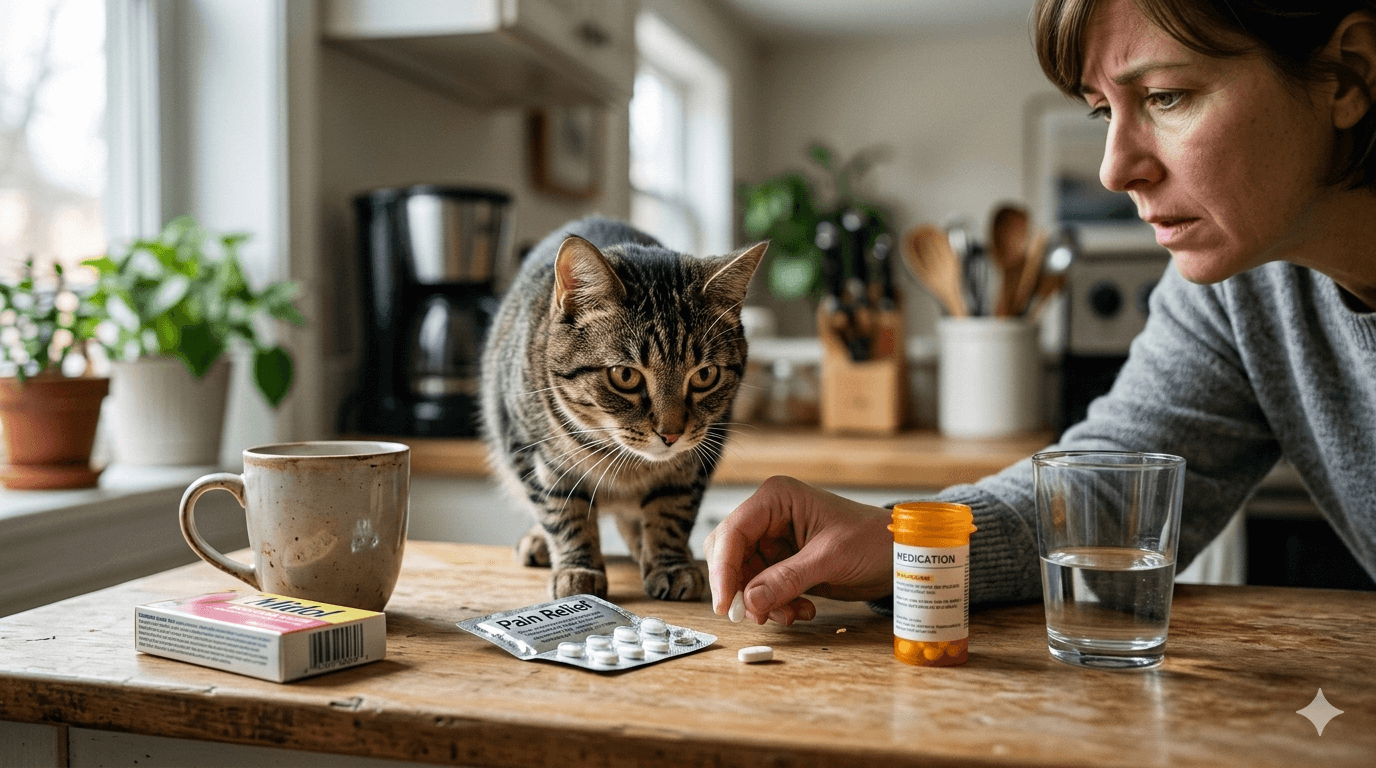Panacur Dosage for Cats: A Comprehensive Guide
As a cat owner, ensuring your feline friend’s health is a top priority. One common concern is dealing with parasitic infections like worms, which can affect your cat’s well-being. Panacur, a widely used deworming medication, is often recommended by veterinarians to treat these issues effectively. However, understanding the correct Panacur dosage for cats is crucial to ensure safe and effective treatment. In this guide, we’ll explore everything you need to know about Panacur, from its uses and dosage guidelines to tips for administering it safely. Whether you’re a first-time cat owner or simply looking to expand your knowledge, this article will provide the clarity you need to care for your furry companion confidently.
Understanding Panacur and Its Uses
Panacur is a popular deworming medication that contains fenbendazole, a broad-spectrum anthelmintic. It works by targeting and eliminating various types of intestinal parasites in cats. Here’s what you need to know about its uses and benefits:
Effective Against Roundworms:
Panacur is highly effective in treating roundworm infections, which are common in kittens and adult cats alike.Targets Hookworms and Tapeworms:
The medication also combats hookworms and certain types of tapeworms, providing comprehensive parasite control.Safe for Kittens and Pregnant Cats:
Unlike some medications, Panacur is considered safe for use in kittens and pregnant or nursing cats when prescribed by a vet.Treats Giardia Infections:
In addition to worms, Panacur can help manage giardia, a protozoan parasite that causes gastrointestinal distress.Easy to Administer:
Available in liquid, paste, and granule forms, Panacur is convenient to administer based on your cat’s preferences and needs.
With its versatility and safety profile, Panacur is a trusted choice for deworming cats. Always consult your veterinarian to confirm its suitability for your pet’s specific condition.

Panacur Dosage Guidelines for Cats
Administering the correct Panacur dosage for cats is essential to ensure effectiveness and avoid potential side effects. Below are general guidelines to help you understand how much to give based on your cat’s weight and condition.
Weight-Based Dosage:
The typical dose is 50 mg of fenbendazole per kilogram (2.2 lbs) of body weight daily. For example, a 10-pound cat would require approximately 1 ml of Panacur liquid daily.Duration of Treatment:
Most treatments last 3 to 5 days, depending on the severity of the infection and your vet’s recommendations.Kitten-Specific Dosage:
Kittens often require smaller doses, starting as early as 2 weeks old, to prevent worm infestations from their mother.Repeat Treatments:
In cases of persistent infections, your vet may recommend repeating the treatment after 2 to 3 weeks to eliminate any remaining parasites.Customized Plans for Severe Cases:
For severe or mixed infections, your vet may adjust the dosage or extend the treatment period for optimal results.
Always follow your veterinarian’s instructions carefully to ensure the correct dosage and duration for your cat’s unique needs.
Check this guide 👉Advantix for Cats: Best 7 Expert Tips!
Check this guide 👉Solensia for Cats: Best 7 Expert Tips!
Check this guide 👉Convenia Injection for Cats: Best 7 Expert Tips!
Factors to Consider Before Administering Panacur | Tips for Safe Administration |
|---|---|
Cat’s weight and age | Weigh your cat accurately before dosing |
Type of parasite being treated | Confirm diagnosis with a vet |
Presence of underlying health conditions | Disclose all medical history to your vet |
Form of Panacur (liquid, paste, granules) | Choose the form your cat tolerates best |
Potential drug interactions | Inform your vet of other medications |
How to Administer Panacur to Your Cat Safely
Administering medication to cats can be challenging, but with patience and preparation, you can make the process smoother. Follow these steps to ensure your cat receives their Panacur dosage without stress or resistance.
Prepare the Dose in Advance:
Measure out the exact amount of Panacur needed and have it ready before approaching your cat.Mix with Food if Possible:
Many cats tolerate Panacur better when mixed with wet food or treats. Ensure they consume the entire portion.Use a Syringe for Liquids:
If mixing isn’t an option, use a syringe (without a needle) to gently administer the liquid directly into your cat’s mouth.Reward Good Behavior:
Offer praise, treats, or playtime after administering the dose to create positive associations.Monitor for Side Effects:
Watch for signs of vomiting, diarrhea, or lethargy, and contact your vet if adverse reactions occur.
By following these steps, you can minimize stress and ensure your cat receives their medication safely.
Signs Your Cat May Need Panacur Treatment
Recognizing the symptoms of parasitic infections can help you determine whether your cat needs Panacur treatment. Look out for these common signs:
Visible Worms in Stool:
Seeing worms in your cat’s feces is a clear indication of an infestation that requires immediate treatment.Diarrhea or Vomiting:
Persistent digestive issues may signal the presence of intestinal parasites.Weight Loss Despite Normal Appetite:
Cats with worms often lose weight even if they’re eating regularly due to nutrient depletion.Bloody or Mucousy Stool:
Abnormal stool consistency can indicate a parasitic infection affecting the gastrointestinal tract.Dull Coat and Lethargy:
Poor coat condition and unusual tiredness are subtle signs of internal parasite activity.
If you notice any of these symptoms, consult your veterinarian promptly to discuss whether Panacur is the right solution for your cat.
Common Mistakes to Avoid When Using Panacur
Using Panacur incorrectly can reduce its effectiveness or harm your cat. Avoid these common mistakes to ensure safe and successful treatment.
Overdosing:
Giving more than the recommended dose can lead to toxicity. Stick strictly to your vet’s instructions.Skipping Doses:
Missing doses during the treatment period can allow parasites to survive and multiply. Complete the full course as prescribed.Not Mixing Thoroughly with Food:
If hiding Panacur in food, ensure it’s evenly distributed so your cat consumes the entire dose.Ignoring Underlying Conditions:
Failing to disclose pre-existing health issues to your vet can result in complications during treatment.Using Expired Medication:
Expired Panacur may lose potency or become unsafe. Always check the expiration date before use.
Avoiding these errors ensures your cat receives the full benefits of Panacur while staying safe.
Alternatives to Panacur for Deworming
While Panacur is highly effective, there are alternative deworming options available depending on your cat’s needs and preferences.
Drontal Tablets:
Drontal targets a wide range of parasites and is administered orally in tablet form.Profender Topical Solution:
This spot-on treatment eliminates worms without oral administration, making it ideal for resistant cats.Natural Remedies:
Some pet owners opt for natural solutions like pumpkin seeds or garlic, though these should complement—not replace—veterinary treatments.Preventative Flea and Worm Treatments:
Monthly preventatives like Revolution protect against both fleas and certain types of worms.Custom Vet Prescriptions:
For complex cases, your vet may prescribe specialized medications tailored to your cat’s condition.
Exploring alternatives helps you find the best solution for your cat’s unique needs.
Tips for Preventing Worm Infestations
Prevention is always better than cure when it comes to parasitic infections. These tips can help keep your cat worm-free and healthy.
Regular Deworming Schedule:
Establish a routine deworming schedule, especially for outdoor cats or those exposed to other animals.Clean Litter Boxes Daily:
Removing waste promptly reduces the risk of reinfestation and contamination.Practice Good Hygiene:
Wash your hands thoroughly after handling your cat or cleaning their living areas.Limit Exposure to Contaminated Environments:
Avoid allowing your cat to roam in areas where stray animals or rodents frequent.Feed a Balanced Diet:
Providing nutritious food supports your cat’s immune system, helping them resist infections.
By implementing these preventive measures, you can significantly reduce the chances of your cat developing parasitic infections.
Frequently Asked Questions About Panacur for Cats
Can I use Panacur without consulting a vet?
While Panacur is available over-the-counter, it’s best to consult your vet for proper diagnosis and dosage guidance.
Is Panacur safe for kittens?
Yes, Panacur is generally safe for kittens as young as 2 weeks old when used as directed by a vet.
What should I do if my cat vomits after taking Panacur?
Contact your vet immediately, especially if vomiting persists or is accompanied by other symptoms.
How long does it take for Panacur to work?
Improvement is typically noticeable within a few days, but full recovery depends on the severity of the infection.
Can Panacur be given with other medications?
Always inform your vet of any other medications your cat is taking to avoid potential interactions.
Prioritizing Your Cat’s Health with Proper Deworming
Ensuring your cat receives the correct Panacur dosage for cats is a vital step in maintaining their overall health and happiness. By understanding its uses, dosage guidelines, and administration techniques, you can tackle parasitic infections confidently and responsibly. Remember, your veterinarian is your greatest ally in tailoring treatment plans to your cat’s specific needs. With proper care and attention, you can keep your feline friend parasite-free and thriving for years to come.
Can I Give My Cat Midol? Best 7 Expert Tips! – Learn the risks, symptoms, and safe alternatives to keep your cat healthy and avoid toxic reactions.
Can I Give My Dog Midol? Best 7 Expert Tips! – Discover the risks, safe alternatives, and expert advice to keep your dog safe from accidental poisoning.
Maximum Weight for Cats on Planes: Best 7 Expert Tips! – Learn airline policies, tips to stay compliant, and ensure safe travels for your feline friend.
Max Weight for Dogs on Planes: Best 7 Expert Tips! – Discover airline weight limits, safe travel tips, and solutions for flying with your dog stress-free.





